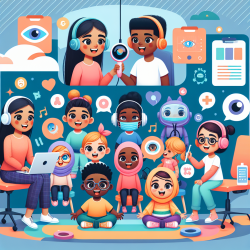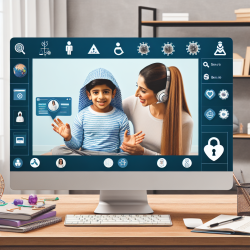In the realm of special education, the involvement of parents is not just beneficial; it is crucial. As educational systems evolve to become more inclusive, understanding the dynamics of special education planning becomes essential for parents. This guide explores how parents can effectively engage in their child's educational journey and collaborate with professionals to ensure the best outcomes for students with unique learning needs.
Understanding Special Education Terminology
The language used in special education can be complex and varies across different educational systems. Terms such as "inclusive education," "students with exceptionalities," and "students with diverse abilities" are commonly used to describe students who require unique support services. Recognizing these terms is the first step towards active participation in your child's education.
The Importance of Family Support
Family involvement is a cornerstone of successful educational outcomes for all students, particularly those with special needs. Parents bring invaluable knowledge and insights about their child's strengths and challenges, which are critical in identifying and addressing special learning needs. Schools benefit immensely from parental input when designing interventions tailored to individual students.
Your Rights as a Parent
- You should be fully informed about your child's educational program to make informed decisions.
- You have the right to be involved in all decisions regarding your child's learning.
- Your participation is essential in designing your child's learning plan, ensuring it meets their unique needs.
- Consistency between school and home strategies is vital for your child's success.
Collaborating with Educational Professionals
A diverse team of professionals supports students with special learning needs. Understanding each role helps parents engage meaningfully in their child's education:
- Principals: Ensure staff receive necessary resources and support.
- Classroom Teachers: Observe and implement strategies for student success.
- Learning Assistant Teachers: Provide additional support and coordinate professional teams.
- Education Assistants (EAs): Work closely with teachers to assist students directly.
- Medical Professionals: Diagnose physical or mental health issues affecting learning.
- Therapists and Psychologists: Assess development and recommend support strategies.
The involvement of these professionals might seem overwhelming at first, but their collaboration is designed to provide comprehensive support for your child.
The Role of Education Assistants (EAs)
EAs play a pivotal role in supporting students with exceptionalities. Their commitment often significantly impacts a child's progress. Parents should engage with school authorities to understand the EA's role and ensure their child receives consistent support.
Questions for School Authorities
- How much time will the EA spend with my child?
- What training does the EA receive?
- How are EAs assigned to classrooms?
- What happens if the EA is unavailable?
Identifying Special Learning Needs
Early identification of special learning needs can prevent challenges from escalating. Whether through parental observations or teacher assessments, recognizing these needs early allows for timely interventions. As a parent, you should feel empowered to discuss any concerns about your child's progress with educators.
The Assessment Process
- Assessments identify strengths and areas needing support but do not require a formal diagnosis for services.
- Your consent is necessary for any formal assessments, ensuring you remain informed throughout the process.
The Power of Individual Education Plans (IEPs)
An IEP outlines the specific educational services required by a student based on their assessed needs. Parental involvement in developing an IEP is crucial as it combines insights from various experts to tailor an effective educational strategy for your child.
IEP Development Questions
- Who coordinates my child's IEP?
- How often will we review the IEP?
- Will my child be removed from regular classes? If so, why?
An IEP is a living document that evolves as your child grows, ensuring continuous alignment with their educational goals.
If your child follows a modified program, understand its implications thoroughly before consenting. Modifications may be temporary solutions subject to review based on your child's progress and goals.
For more information, please follow this link.










